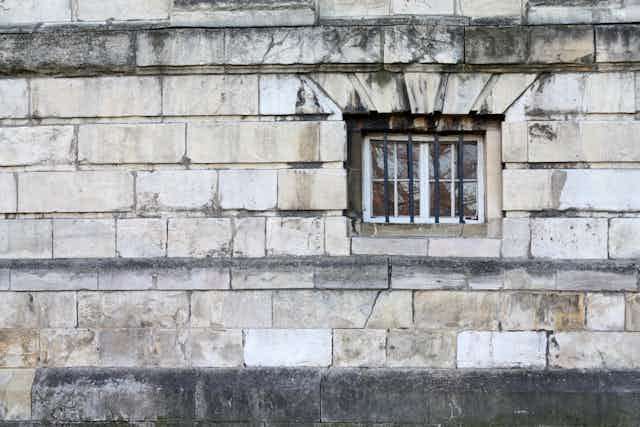Disenfranchisement is a relic from punishments of the past. In the UK, it dates back to the Forfeiture Act of 1870, when it was decided that that those convicted of a felony could not vote in elections for parliament.
Stripping citizens of the right to vote is based on an idea of civic death. When someone has broken the laws of society, they lose their rights and responsibilities as a member of that society.
One would hope this is a far cry from what we would expect from a 21st-century justice system. These days, people are sent to prison to lose their liberty, not their identity. Their punishment is purely the deprivation of liberty, not the loss of citizenship, nor the denial of human rights, nor further punishments whilst in custody.
Yet the European Union’s most senior court has decided that governments can do just that. The court has ruled that denying French convicted murderer Thierry Delvigne a vote in European elections is “proportionate” to his crime.
In the UK, the government has been arguing for years that prisoners should not be allowed to vote. Prime minister David Cameron has even said the thought of allowing it makes him feel “physically sick”. Now he has the all clear to deny the vote to people convicted of serious offences in England and Wales – though it is not yet clear what this ruling means for prisoners convicted of less serious offences.
The prison population in England and Wales reached 84,372 in May 2015. Between 1993 and 2014, the number of people in custody increased by more than 40,000 – a 91% rise. The majority are from lower socio-economic groups and a disproportionate number are black. In preventing this large group of people from voting, a new type of ghetto is potentially being created.
As a result of US policies, millions of Americans have temporarily or permanently lost the ability to cast a ballot. A mere quarter of a century after acceding to full voting rights, this means that one black man in seven is banned from the electoral booth through penal disenfranchisement. In 2000, it was estimated that seven states were permanently denying the vote to more than a quarter of their black male residents.
A decade ago the European Court of Human Rights declared the UK’s ban on prisoner votes unlawful. The case was brought by convicted killer John Hirst, who has since been released, having served 25 years in jail. Since then, in spite of the legal challenges the British criminal justice system has ignored calls to amend the law.
Unlike in France, where only prisoners sentenced to five years or more are denied the vote, the UK imposes a blanket ban. No matter what the offence or the sentence, if you are in prison, you are disenfranchised.
Punish or rehabilitate?
The UK is out of step with most European countries on this issue. Prisoners may vote without restriction in 17 countries and may frequently or sometimes vote in a further 13. The UK is one of only 12 countries where people in prison are still stripped of their voting rights. The UK seems to have lost its way when it comes to the rights and responsibilities of its citizens in prison.
Barring prisoners from voting may actually harm rehabilitation work, since participating in elections is likely to encourage them to become responsible, law-abiding citizens. Banning them from taking part is indicative of a wider shift away from rehabilitation and towards mass imprisonment.
By making prison a place of pure punishment and by denying prisoners a stake in society, we are alienating the most vulnerable people in society. It reminds me of an observation made in 1968 – that the prison system is part of an institutional network for governing the poor.
In April 1999, the constitutional court of South Africa declared that: “The universality of the franchise is important not only for nationhood and democracy. The vote of each and every citizen signifies dignity and personhood. Quite literally it says that everybody counts.”
And that, in turn, makes me think of a famous quote by Nelson Mandela. “It is said that no one truly knows a nation until one has been inside its jails. A nation should not be judged by how it treats its highest citizens, but its lowest ones.”

